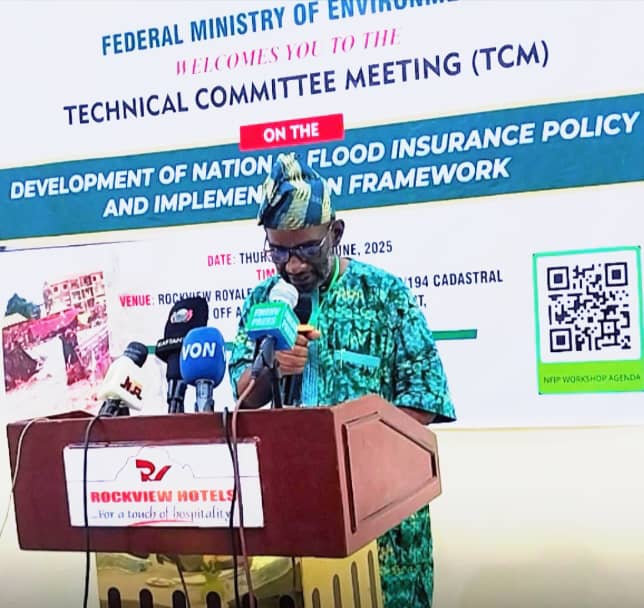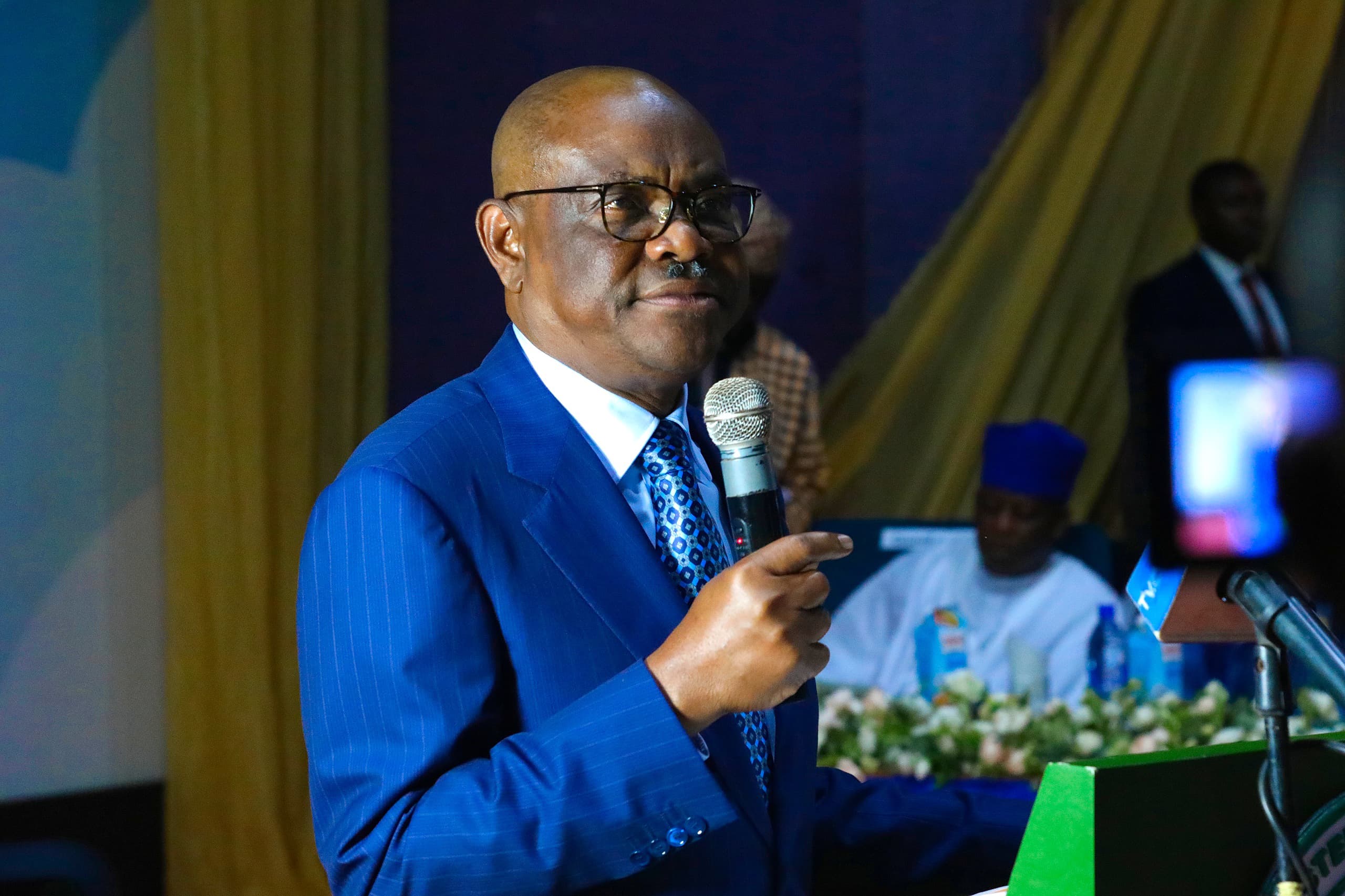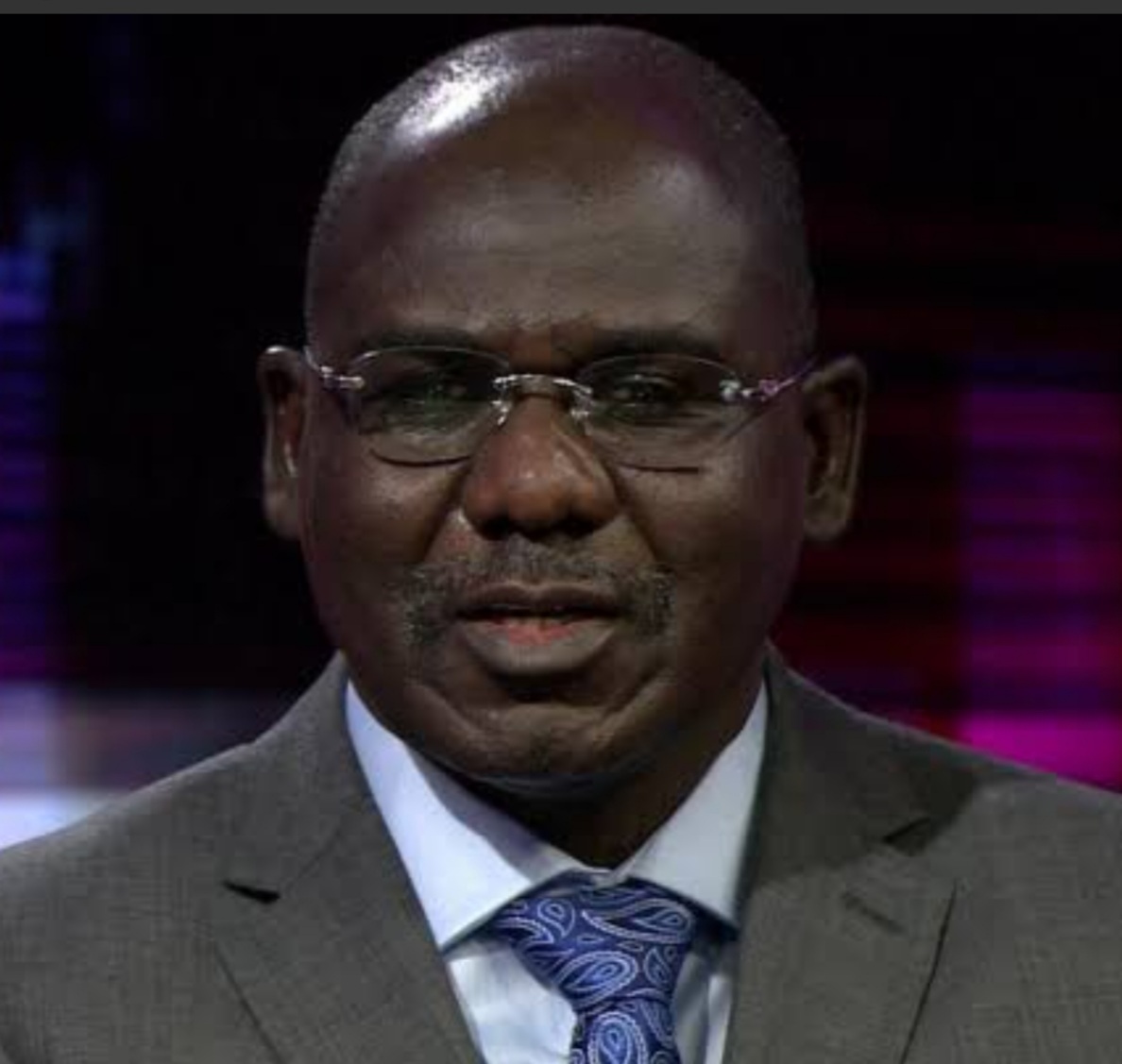FG adopts national policy to tackle flood disasters Flood
By Abigael Joshua
The Federal Government has adopted a National Flood Insurance Policy (NFIP) aimed at addressing the growing threat of flood-related disasters across the country.
The initiative was announced on Thursday in Abuja during the Technical Committee Meeting (TCM) on the Development of the National Flood Insurance Policy and Implementation Framework.
The Permanent Secretary of the Ministry of Environment, Mr Mahmud Kambari, said the policy would reduce the financial burden on both federal and state governments currently allocated to emergency relief and post-disaster reconstruction.
Kambari, who was represented by Mr Kunle Awojemila, Deputy Director in the Department of Flood Erosion Control and Coastal Management, said the NFIP is a proactive response to the increasing frequency and severity of flooding in Nigeria.
“The time has come to shift from reactive responses to proactive and sustainable flood risk management.
“The establishment of a National Flood Insurance Programme as outlined in Section Four of the National Erosion and Flood Control Policy (NEFCOP) is central to this strategy,” he said.
He added that the NFIP would serve as a financial safety net for individuals, businesses, and communities, enabling swift recovery from flood-induced losses and ensuring long-term resilience.
The technical committee, he noted, would define clear timelines, assign responsibilities, and develop monitoring mechanisms to ensure the policy’s effective implementation.
Also speaking, Mrs Rukayat El Rufai, Special Adviser to the President on National Economic Council and Climate Change, stressed the need to prioritise flood insurance to secure a more resilient future for Nigerians.
El Rufai, represented by Mrs Inna Audu, Special Assistant to the President on Humanitarian Affairs, noted that many communities along the River Benue, River Niger, and their tributaries are primarily agrarian and suffer devastating losses due to seasonal flooding.
“When you talk about insurance, it is not something to be done after disaster strikes. It is a preparedness mechanism, an anticipated action. Contributions must be made in advance to create a fund for emergencies,” she said.
She lamented the enormous economic and human toll of recurring floods in Nigeria, adding: “We can only estimate the trillions of naira lost to flooding in recent years, losses to farms, properties, and lives.
“While lives cannot be quantified in naira, we can protect the most vulnerable from financial ruin”.
El Rufai observed that current insurance policies often bundle flood coverage under general packages, which fail to adequately address specific flood risks.
She advocated for standalone flood insurance policies, which she said offer clearer and more comprehensive protection, promote better risk management, and support disaster recovery efforts.
Earlier, Mr Usman Bokani, Director of the Erosion and Coastal Zone Management Department, said the national framework would guide the implementation of a robust and inclusive flood insurance system.
Bokani, represented by Mr Abdullahi Atta, Assistant Director, Coastal Zone Management, said the policy aims to protect vulnerable populations, support rapid post-flood recovery, and enhance national resilience.
“We will explore models for financing, risk pooling, regulatory alignment, and delivery mechanisms at the community level,” he said.
(NAN)www.nannews.ngr
Edited by Tosin Kolade














